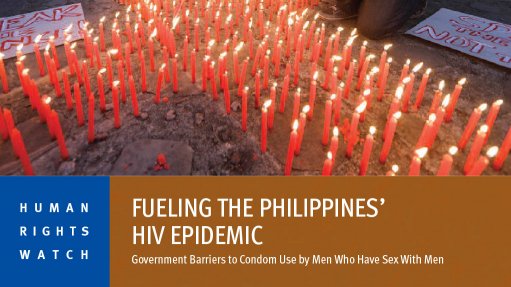
The Philippines is facing one of the fastest-growing epidemics of human immunodeficiency virus (HIV) in the Asia-Pacific region. According to official statistics, HIV prevalence among men who have sex with men has increased tenfold in the last five years. In 2015, the Department of Health reported that at least 11 cities have recorded HIV prevalence rates of more than 5 percent among men who have sex with men, with Cebu City, the county’s second largest city, recording a 15 percent prevalence rate in 2015. Those statistics dwarf the 0.2 percent overall HIV prevalence rate for the Asia-Pacific region and 4.7 percent overall HIV prevalence rate in Sub-Saharan Africa, which has the most serious HIV epidemic in the world.
The country’s growing HIV epidemic has been fueled by a legal and policy environment hostile to evidence-based policies and interventions proven to help prevent HIV transmission. Such restrictions are found in national, provincial, and local government policies, and are compounded by the longstanding resistance of the Roman Catholic Church to sexual health education and condom use. Government policies create obstacles to condom access and HIV testing and limit educational efforts on HIV prevention. Children may be particularly vulnerable to HIV due to inadequate sex education in schools and misguided policies requiring parental consent for those under 18 to purchase condoms or access HIV testing.
Despite its claims that it is adopting policies to help prevent the spread of HIV, the Philippine government is failing to adequately target HIV prevention measures at men who have sex with men (MSM). HIV prevention education in Philippine schools is woefully inadequate and the commercial marketing of condoms to MSM populations is nonexistent. (MSM is an umbrella term originated by health professionals for men and male youth who have sexual relations with persons of the same sex, whether or not they identify as gay or bisexual or also have sexual relationships with women.)
Report by the Human Rights Watch